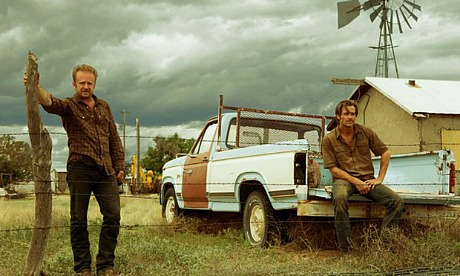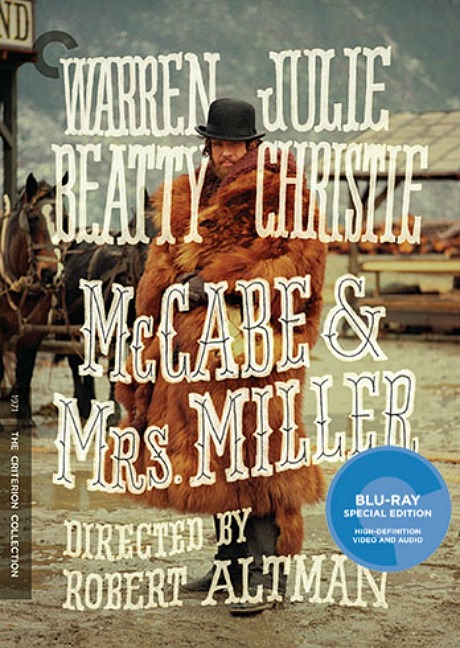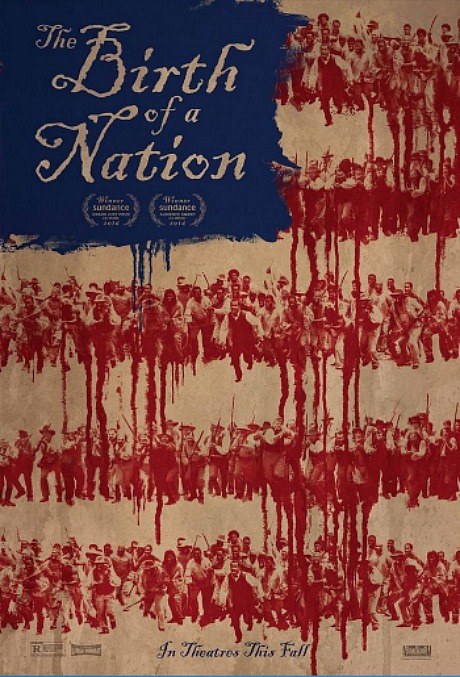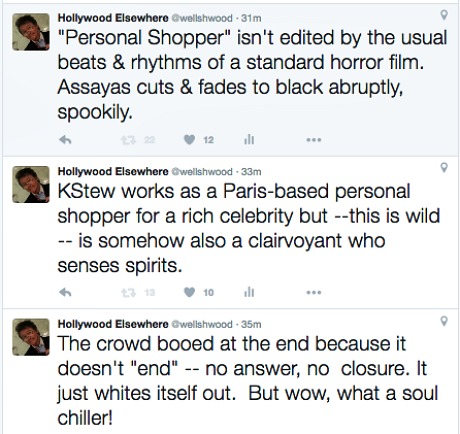I was momentarily disappointed with something Personal Shopper director Olivier Assayas said yesterday during yesterday afternoon’s press conference. Shopper seriously entertains the possibility that Stewart’s character, Maureen, is being visited by the ghost of her dead brother, Lewis. All kinds of apparitions (visually based upon old photographs of ghosts taken in the early 20th and late 19th Century) appear, and a texting sequence that occupies a good portion of Act Two was, for me, a huge turn-on. (A texting ghost!). And then party-pooper Assayas said that every spooky thing in the film was rooted in common reality. I don’t want ghost stories to be too creepy and ectoplasmic or too rooted in the realm we all know — I like them to float in between. Nobody wants to hear that strange phenomena has had nothing to do with the inexplicable or undefinable. Imagine if Robert Wise had told the press in ’63 that Hill House wasn’t really haunted and that Julie Harris‘s character was just unstable and delusional.
Brazil’s “Soft Coup” Protested in Cannes by Team Aquarius
This is a day late and a dollar short but prior to yesterday afternoon’s Cannes screening of Kleber Mendonca Filho‘s Aquarius, the cast (including star Sonia Braga) held up signs stating that currently suspended Brazilian president Dilma Rousseff had been ousted from office by a coup d’etat. Last Thursday Brazil’s Senate voted to impeach Rousseff, a leftist populist, for breaking budget laws. Rousseff has said in so many words that she’s the victim of a coup, and if you research this a bit it’s apparent she’s speaking the truth.
Noam Chomsky as quoted by Democracy Now: “As even The New York Times pointed out, Dilma Rousseff is maybe the one leading [Brazilian] politician who hasn’t stolen in order to benefit herself. She’s being charged with manipulations in the budget, which are pretty standard in many countries, taking from one pocket and putting it into another. Maybe it’s a misdeed of some kind, but certainly doesn’t justify impeachment. In fact, we have the one leading politician who hasn’t stolen to enrich herself, who’s being impeached by a gang of thieves, who have done so. That does count as a kind of soft coup. I think that’s correct.”
Doctor Detective
Whatever the story or thematic import, it was nearly a foregone conclusion that Jean-Pierre and Luc Dardennes‘ The Unknown Girl would be a moral tale that would (a) underwhelm, (b) radiate integrity and (c) be almost entirely composed of medium shots of people talking. Plain-spoken, unforced, refined, unpretentious. The Dardennes are nothing if not consistent.
And if you’re smart, you’ll just sit there and take it. You have to slurp the soup and at least respect the ingredients. During this festival, I mean. As I wrote two years ago, the only negative thing Cannes critics are allowed to say about a Dardennes film is that it’s “minor.”
That’s certainly a fair description of The Unknown Girl, which screened in Cannes this morning. Another is CSI: Liege. Set in that allegedly dull** Belgian city, it’s about a young doctor named Jenny (Adèle Haenel) who feels besieged with guilt after ignoring an after-hours attempt by a young African girl to gain entry to her clinic. The girl is found dead the next morning, an apparent murder victim.
The film is about Jenny doing her best to investigate what happened. She is nothing if not gently persistent, and the matter is finally resolved at the end. But before it does the viewer is stuck with the unfolding, the process. Oh, the Liege of it all! That’s a cynical thing to think, much less express. But I was bored.
They Love Bubba
“The thing about Hillary is the fact [that] she never went away. Everyone who ever runs for president goes away. Richard Nixon went away. Mitt Romney didn’t appear until, like, four weeks ago! And then you go, ‘Wow! Oh, wow! I forgot! You’re not so bad!’ She’s the one who’s in the carpool with you for 10 fucking years, and every morning you got that cup of coffee and you’re going, ‘I can’t believe I gotta pick her up again.’” — Lewis Black speaking last night on Larry Wilmore‘s The Nightly Show.
“I’m Finished”
It’s 12:30 am and I’m pretty much whipped. Up and rolling since 6 am, and I’ll be hitting Jean-Pierre and Luc Dardennes‘ The Unknown Girl tomorrow at 8:30 am. Today I saw three films — Pedro Almodovar‘s Julieta (exquisitely composed and well acted but mainly an anguished Joan Crawford mother-daughter hairshirt film), Kleber Mendoca Filhos‘ Aquarius (a rooted, well-honed Brazilian drama about time, aging, survival, dignity and cultural changes with Sonia Braga playing a tough matriarch) and finally David MacKenzie‘s Hell or High Water, which at first glance I was a little afraid of as it seemed B-movieish. It turned out to be not just a tight and forceful bank robbers-vs.-cops drama, but a wry and eloquent one also. It has guns and loot and getaway cars, but the real subject is the tapped-out hinterland economy and how it all seems to be about despair and downhill attitudes out there in shitkicker country. The wise, sometimes funny and sometimes solemn screenplay, written by Taylor Sheridan (Sicario), is the saving grace. Jeff Bridges, Chris Pine and Ben Foster (who’s looking a lot beefier than he did five or six years ago) costar.

An Even-Toned, Not-Too-Dark 4K Mastering Would Be Nice
Posted on 5.7: “God forbid the possibility of Criterion delivering a 4K Bluray of McCabe and Mrs. Miller down the road. That candle-and-kerosene-lighted 1971 classic is already dark and smokey, and given their established tendencies the Criterion guys would probably take it even deeper into the cave.” Criterion’s McCabe Bluray, announced yesterday, will pop on October 11th. I’m fearful because I dislike their darkened-down 4K version of Only Angels Have Wings, and I’m no fan of the seemingly darker Bluray of The Player. Enough with the inky.

Respectable Plus
Hats off to whomever (outside ad agency or in-house Fox Searchlight team) for creating this above-average Birth of a Nation one-sheet. Rousing, classy, half-convincing historical font. (It actually looks more like a 18th Century font but we’ll let that go.) I can see the award-season ads in my head.

Stephen Frears’ Bloody Kids
I caught a Critics Week film over at the Miramar a couple of days ago. (I didn’t like the film that much so we’ll let that part go.) I was sitting on the right aisle with four empty seats to my right. The theatre was filling up quickly. A group of five well-off Asian kids (early 20s) came along and piled into the four but with one of their group stranded. The kid next to me asked if I’d mind sitting in the row in front so they could all sit together, but the seat in question was two seats in from the aisle and I like to stretch out so “sorry, nope.” So the fifth kid took it.
Then they all decided to sit in the row behind because it had five open seats, but then some guy and his girlfriend returned from the bathroom or someplace and said “wait, two of these seats are ours…we saved them.” The couple had followed the ancient custom of leaving an article (jacket, bag) to mark the seats so the quintet had no argument. So four of them re-occupied the seats in my row with the fifth guy again left high and dry so he sat right behind them.
The four hypers were chattering, giggling. Two girls got up just before the film started (presumably to hit the head), returning about six or seven minutes later. I managed to keep my eyes on the subtitles as I stood up to let them pass.
Scary In Plain Sight
Why is Trump suddenly doing much better than anyone else had expected at this stage? God forbid what might happen when he starts going nuclear on Hillary and gradually driving up her negatives. Why, given an abundance of evidence that Trump is a grotesque and hateful manifestation of every small and ugly impulse among the worst people in this country, is he suddenly within spitting distance of out-polling her? Because a lot of people whose incomes are stagnant or shrunken want a big-change candidate, and they see Hillary as bringing more of the same. Which is why Bernie, despite his inability to win the Democratic nomination, would almost certainly do better against Trump. (As polls have shown.) Because Bernie has tapped into the same pool of voter despair, albeit in a constructive and intelligent way.

Friends of Personal Shopper
“[A] captivating, bizarre, tense, fervently preposterous and almost unclassifiable scary movie from Olivier Assayas…a film which delivers the bat-squeak of pure craziness that we long for at Cannes, although at the first screening some very tiresome people continued the festival’s tradition of booing very good films.
“It is actually Assayas’s best film for a long time, and Stewart’s best performance to date — she stars in a supernatural fashionista-stalker nightmare where the villain could yet be the heroine’s own spiteful id. Is it The Devil Wears Prada meets The Handmaiden (also in Cannes) with a touch of Single White Female?” — The Guardian‘s Peter Bradshaw.


“How the hell did this movie get made? We pose this question in genuine awe, with absolutely no hint of back-biting consternation. Occasionally it’s a genre movie, then it’s a study of grief, then a satire, then a murder mystery and then a Hitchcockian thriller, and sometimes it manages to be all that and more in the very same moment.
“Assayas taps a wellspring of thought on forms of communication [while drawing] parallels between 19th century drawing room seances and Skype calls. In Personal Shopper, death is just another form of alienation, a physical remove from a person we once knew. Words themselves come under close scrutiny, and Assayas asks if we can ever truly connect with another person if we’re not standing right in front of them and communing fully with the senses. The incessant buzz of a smartphone becomes an attention-grabbing scream from out of the ether.” — Little White Lies’ David Jenkins.
Glorious Jacks Pops in Cannes, But It Didn’t Look Like 1.85
The first-anywhere unveiling of the restored version of Marlon Brando‘s One-Eyed Jacks happened late last night, and it looked truly wonderful in every respect. Yes, that includes the aspect ratio. I’ve been arguing that the restorers, Universal Home Video and The Film Foundation, should have gone with a somewhat more liberal 1.75 or 1.78 a.r. instead of an announced cropping of 1.85. My tried-and-true “why needlessly slice off that luscious head room?” argument was posted time and again.
Well, guess what? The Jacks a.r. didn’t look like 1.85 to me — it definitely looked more like 1.75. Speaking as an ex-projectionist and an a.r. fanatic second to none I know exactly and precisely what 1.85 vs. 1.75 are shaped like, and I’m telling you there’s an ample amount of headroom in every shot. To my enormous relief Jacks didn’t feel cut off or cramped in the slightest. And that, to me, spells 1.75.
My guess is that the film was indeed shown at 1.75. I was sitting right there in the second row, repeatedly calibrating the a.r. with my eye and my gut, tilting my head 90 degrees to the right and assessing the geometry, and I can’t accept that what I saw last night was cropped at 1.85. My guess is that the film was screened at 1.75 (the French have their own ways) but that the Bluray will pop at 1.85, or with a tiny bit less height. I’ve got an email out to Universal’s Peter Schade and The Film Foundation’s Margaret Bodde (both of whom delivered opening remarks) to suss this out.
The Big Chill
I have to leave for the Salle Bunuel for the 10:30 pm One-Eyed Jacks screening but first I have to at least post my tweets about Olivier Assayas‘ Personal Shopper, which broke around 40 minutes ago. The mostly Paris-based ghost story starring Kristen Stewart as (I know this sounds strange) a combination personal shopper and clairvoyant. which broke around 90 minutes go. More of a spooker than a “horror film,” but absolutely fresh and world-class in that realm. On par with Robert Wise‘s The Haunting, and I don’t care if every Tom, Dick and Harry agrees with me or not. (My flat-mate didn’t care for it.) This is a knockout, trust me.





